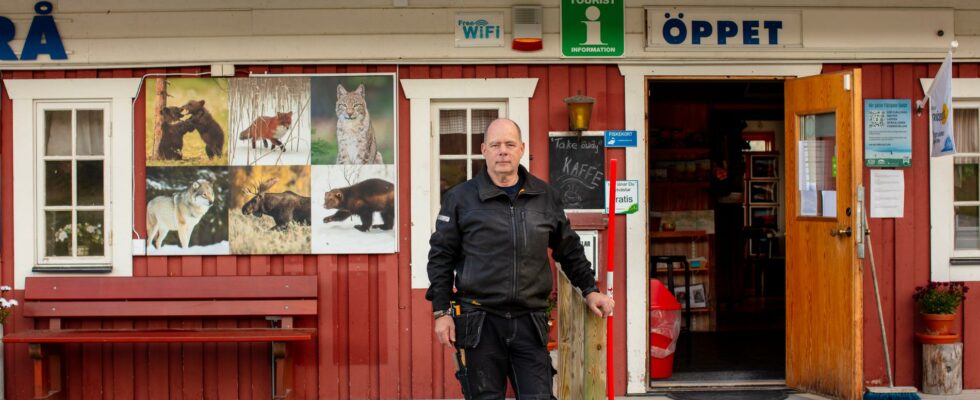unsaveSave
A sharp reduction in the number of tourists – that is the result, says John Regouw, chairman of the tourist office in Ljungdalen.
1 / 3Photo: Lykke Andersen/TT
Thousands of fewer guest nights – that seems to be the result after the Swedish Tourist Association’s debated decision to cut back on operations in the Jämtlandsfjällen.
– We live on tourism to 95 percent, from shops to artisans and restaurants, says John Regouw, chairman of the tourist office in Ljungdalen.
The Swedish Tourist Association (STF) and the Sami villages in Jämtland concluded an agreement in August last year at the request of the County Board – which meant that STF would close parts of its operations, so as not to disturb the reindeer in the area.
The summer season was shortened, the number of beds was reduced and Gåsens fjällstuga closed. STF last year had around 40,000 guest nights at the accommodations they run in the Jämtlandsfjällen, and has counted on 8,000 fewer guest nights this year – which the statistics so far lean towards.
– We are roughly in the range that we budgeted ourselves, says Maria Ros-Hjelm, secretary general at STF.
The changes led to misunderstandings among visitors, and STF has received many questions about what applies, says Ros-Hjelm.
“Living on tourism”
In the village of Ljungdalen by Helgasfjället, the changes have had an effect, according to John Regouw, chairman of the Tourist Office in Ljungdalen. The number of cars in the parking lot has decreased by 11 percent from January 1 to July 31. The proportion of cabins that the tourist office rents out has decreased by 18.5 percent.
– We live on tourism to 95 percent, from shops to craftsmen and restaurants.
Johanna Öhman runs the guest house Helags in Ljungdalen. She feels that the pandemic – when tourism increased sharply – influenced the decision. Both Öhman and Regouw want the tourism industry to be involved in the decision.
Ros-Hejlm understands the feeling of wanting to be involved, but that there are many actors who would have liked to be involved.
– But if we had had such a large dialogue, I’m afraid that to this day we would not have reached the goal and we had a sharp deadline for when our land lease expired.
“Find opportunities”
That the pandemic figures were the basis is not true, says Ros-Hjelm. In 2019 – before the pandemic – the first signals came from the County Administrative Board that the terms of the lease would need to be discussed when it expired. She hopes that the changes will eventually lead to new opportunities for actors around Jämtland.
– I hope and believe that in the long run Ljungdalen will also find opportunities in the changes we are making. But I understand that we have some way to go.
Micke Hagman, restaurant manager for Restaurangen i Ljungdalen, has not noticed a decrease in tourism. However, fewer cottage owners have vacationed due to the bad weather in July. They are the most important guests, he believes.
– They spend months every year up here. They think about the deli, go to a restaurant, rent snowmobiles and so on.
FACTS The changes in the Jämtlandsfjällen
The summer season is shortened. The mountain huts and mountain stations are opened later, so as not to disturb the reindeer during the sensitive calving period.
Most stations opened on July 1 this year, with the exception of Sylarna’s mountain station, which opened on July 15.
Blåhammaren’s mountain station no longer has service. The restaurant is closed and the number of beds has been halved.
At the Sylarnas mountain station, the number of beds has decreased by 25 percent.
Gåsens fjällstuga has closed completely.
The restaurants at Sylarna and Helags are to close by 2028 at the latest. They will be replaced by a store concept similar to the one at Blåhammaren.
Source: STF
Read more
